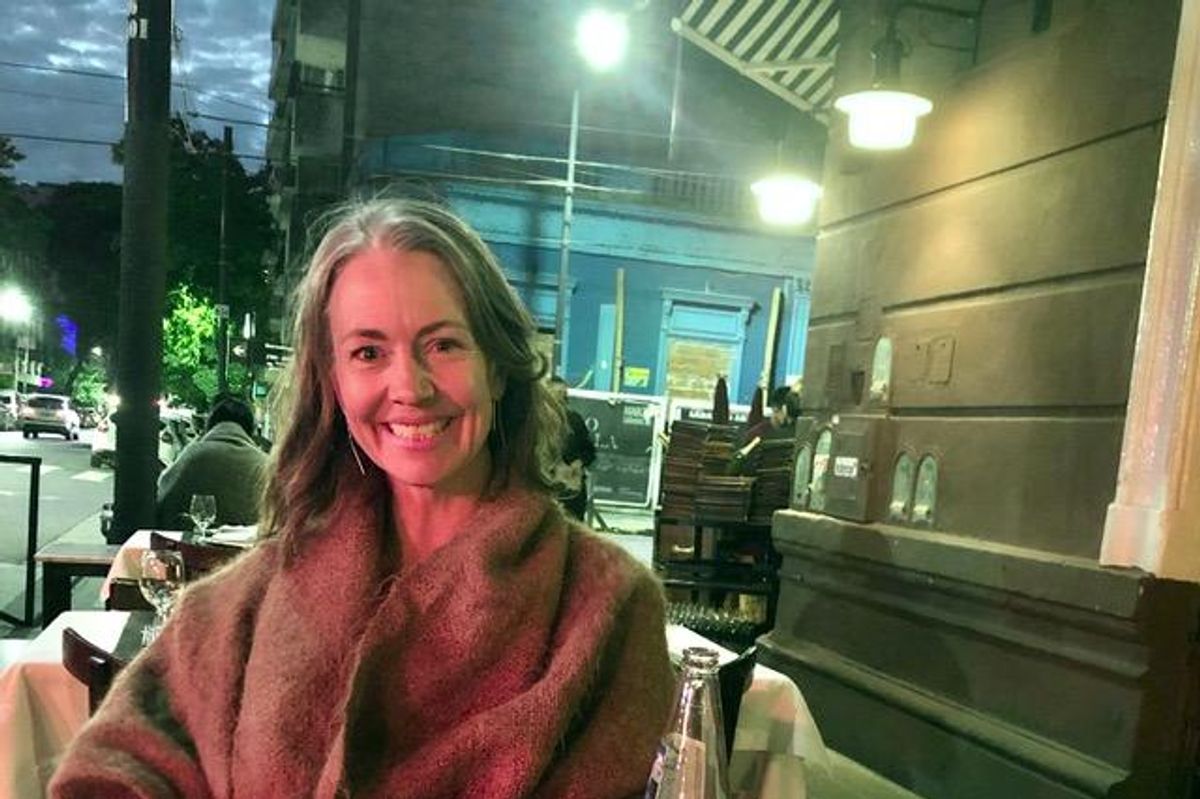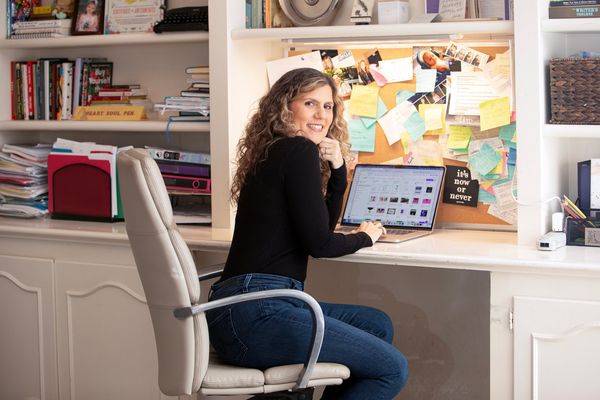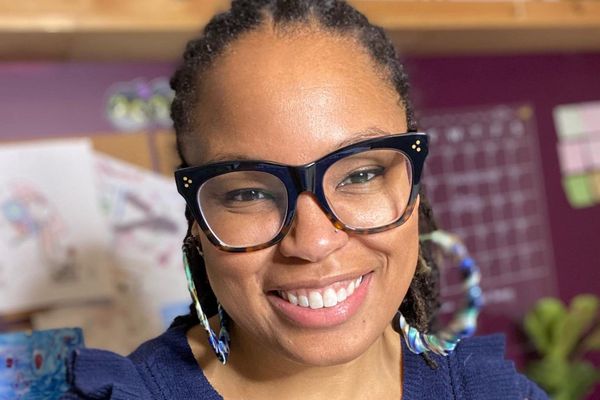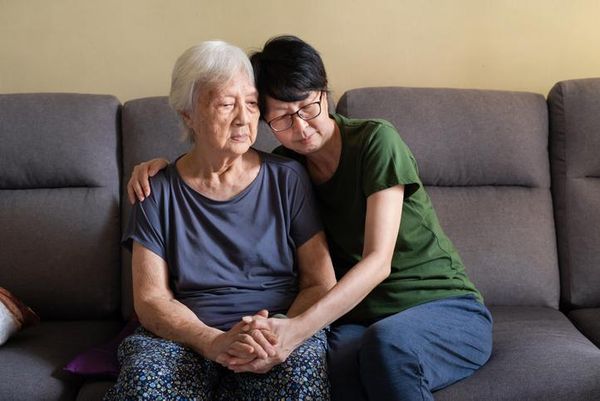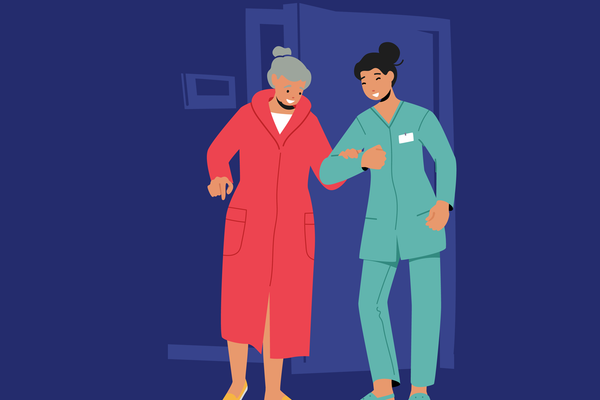As told to Liz Sauchelli
When someone gets sick, the instinct of their social circle is to help. “What can I do?” people ask. “What do you need?” These questions, while well-intentioned, can sometimes be a little overwhelming.
That’s the position I found myself in in 2012 when my mother-in-law’s breast cancer came back. My husband, four children and I had just moved back to Phoenix, close to my in-laws, who were also settling into a new home. In addition to getting my children settled at a new school, I was organizing our household and helping my in-laws as well.
Then, my mother-in-law got sick and I suddenly had the role of caregiver. I took her to every doctor’s appointment and every treatment. While my father-in-law was often with us, I took on the role of coordinating her care. One of the challenges that immediately came up was food: Radiation treatment exhausted my mother-in-law and made it difficult for her to eat. Her diet became very restricted and — even more pressing — she found it difficult to cook.
My father-in-law has many amazing skills, but cooking is not one of them. When she was well, my mother-in-law delighted in cooking meals for the two of them. But when her cancer returned, my father-in-law had to care for her — and also himself.
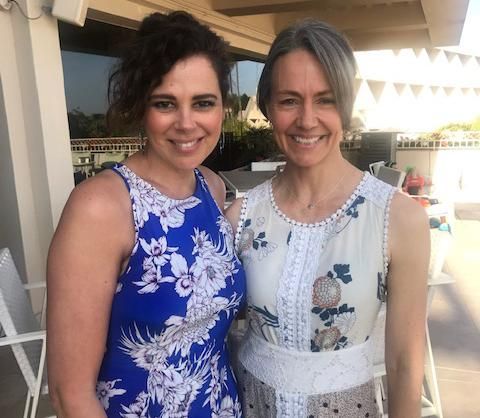
That’s when I remembered Meal Train in partnership with Magnolia, a program that one of my friends from church introduced me to. It’s an online platform where people can sign up to bring home-cooked meals to people who need an extra hand during a time of change, like getting a cancer diagnosis.
Now, when people asked me what they could do to help, I had a definitive answer and a link to send them. While my husband and I had previously lived in Phoenix, it had been years since the city was our home. My mother-in-law had spent years working in the public school system and had a very different set of friends whom I didn’t know very well. Meal Train gave me a way to connect with them.
I also didn’t have to worry about the logistics: I didn’t have to make my own schedule and keep track of who was bringing what when. I knew who to address thank-you notes to and was able to build a group of people that I knew wanted to be part of her care.
One of the main reasons I started a Meal Train for my mother-in-law was to care for my father-in-law. Being a caregiver can be incredibly isolating. So many conversations focus on doctors’ visits and medical care. Your world can become isolated. If left to his own devices, my father-in-law would likely have eaten a lot of fast-food hamburgers.
I scheduled meals to be delivered nearly every other day when my father-in-law was home and I was at the hospital with my mother-in-law. While my mother-in-law appreciated the meals, interacting with people was difficult because she was so exhausted from treatment. But it was different for my father-in-law — a very social person who thrived on those visits. It was a nice way for him to have conversations that didn’t revolve around dealing with doctors and the hospital.
We used Meal Train for about six weeks — four weeks when my mother-in-law was undergoing treatment and her first two weeks in hospice. The home-cooked meals helped sustain my father-in-law both physically and emotionally during that time.
When someone first gets diagnosed with cancer, the offers of help pour in right away. But over time, they eventually decrease — or vanish entirely — as someone’s illness goes into months or even years. Meal Train helps extend that help and concern and keep the community of care going. People can sign up to deliver a meal once a week or once a month.
Over the next decade, I continued to use Meal Train at least four times a year. Recently, I’ve been using Meal Train to help my close friend Hannah, whose cancer is really taking a lot out of her.
Hannah loves to cook but because of her cancer, she’s unable to stand for long periods of time in order to do so. While I’m the administrator of the account, Hannah and her husband are able to make changes, too, like putting it on pause if she has to go into the hospital.
Hannah has quite a few dietary restrictions and the people who bring her meals can look them up on her account. Often, Hannah is home when the meals are delivered and she is so excited to see and talk to the people dropping them off. It’s so nice to see how happy she is to interact with the people who care for her and show their love through food.
And that’s what home-cooked meals are: Love. It’s a simple thing, making someone’s favorite meal and bringing it to them when they aren’t feeling well. Yet it means so much. I feel like it really builds a community and makes a person feel cared for.
My mother-in-law and Hannah loved cooking for their husbands. That’s the way they expressed love and that’s the thing they can’t do. It’s people caring for their family members the way they wish they could care for them. I’ve seen firsthand how the meals people organized helped put my mother-in-law’s and Hannah’s minds at ease, knowing their loved ones were being looked after too.
One of the biggest challenges when a loved one has cancer is that you never feel like you’re doing enough. You have no control over whether treatment is going to work. But organizing and making meals gives people an outlet to help. The doctors are going to take care of the treatment, and as a friend, I can do something just as meaningful.
This resource was created with support from Eisai.
Meal Train® is a registered trademark of Meal Train LLC.
Meal Train® in partnership with Magnolia is supported by Eisai.
- How to Care for Someone Living With Breast Cancer - HealthyWomen ›
- Coordinate a Meal Train for Someone Battling Breast Cancer - HealthyWomen ›

